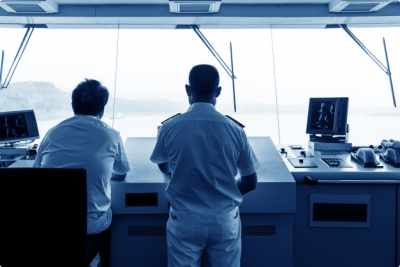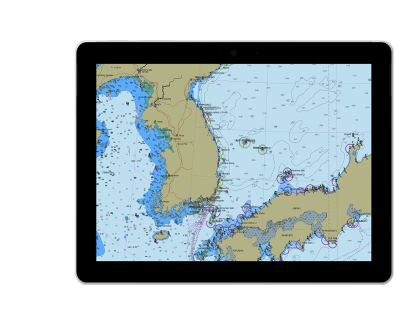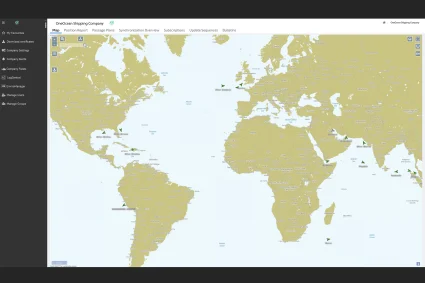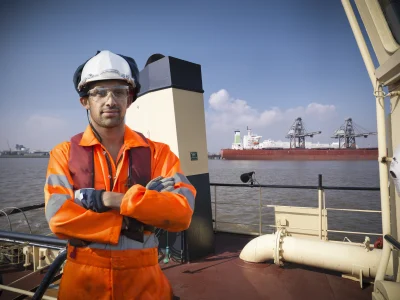
Enable active support anytime, anywhere
Managing vessels from shore – particularly with fleets spread across global locations – is a significant challenge for shoreside teams. Providing effective support can prove difficult when vital information and context is delayed or missing.
The Situational Awareness module helps connect shoreside teams directly with vessels, with access to a real-time visualisation of the circumstances for each vessel in their fleet. The connection and visualisation together provide the situational awareness needed to support each individual vessel on its voyage.
Situational Awareness has what’s needed to connect teams and put you in control of any situation – at sea or on shore.
Key outcomes
Direct connections
The Situational Awareness module makes it easy to keep disparate teams in touch, connecting crew and shoreside teams for optimised outcomes.
Shoreside, real-time visualisations
With up-to-date oversight of every vessel in your fleet, you can keep every stakeholder informed of changes.
Full awareness
With simple access to onboard data, such as the passage plan, vessel position, weather and environmental data – shoreside teams gain the context to provide meaningful support to offshore crews.
SeaTab: a portable ENC viewer
For optimum peace of mind, SeaTab, the portable ENC viewer offers standalone situational awareness for onboard users.
It provides a straight-forward visualisation of charts and a clear 50NM range, helping ships navigate to safety and avoid potential collisions. SeaTab’s simulation capabilities mean users can plan for optimal navigation at port and during berthing procedures, in advance of port entry, and this can be done away from the bridge.
It’s ideal for smaller vessels without substantial navigational equipment, allowing them to access charts, plan routes and sail with a full understanding of relevant navigational factors. It provides real-time situational awareness should the onboard ECDIS fail, keeping the bridge in control.

Fleet monitoring
Using both satellite and terrestrial AIS or GPS tracking, shoreside personnel can monitor the status of a specific vessel or an entire fleet, oversee safety and stay on top of voyages and performances. It provides accurate vessel positions, movements against approved passage and the ability to set up alerts for deviation notifications.
This data can be used to quickly assess each vessel and keep all stakeholders up to date on voyage progress. You can also better plan all the associated logistical requirements of transferring cargo, changing crews and maintaining vessels.

Merge modules for increased clarity
Latest insights

RCL partners with LR OneOcean to drive fleet optimisation and emissions reduction
Other solutions you might be interested in

Vessel Tracking
Manage fleets spread across the globe, with seamless shoreside monitoring from the Vessel Tracking module of OneOcean Operations.
Navigation
Preparing mariners with the insights needed to stay compliant, while safely and efficiently navigating every stage of the journey.
Compliance
Ensure your fleet and vessels always meet regulatory, environmental and reporting requirements with comprehensive maritime compliance software, compiled by the most experienced team in the business.
Operations
Providing the granular detail shoreside teams need to monitor fleet activity in a single view.
How can we help?

SeaTab: a portable ENC viewer
For optimum peace of mind, SeaTab, the portable ENC viewer offers standalone situational awareness for onboard users.
It provides a straight-forward visualisation of charts and a clear 50NM range, helping ships navigate to safety and avoid potential collisions. SeaTab’s simulation capabilities mean users can plan for optimal navigation at port and during berthing procedures, in advance of port entry, and this can be done away from the bridge.
It’s ideal for smaller vessels without substantial navigational equipment, allowing them to access charts, plan routes and sail with a full understanding of relevant navigational factors. It provides real-time situational awareness should the onboard ECDIS fail, keeping the bridge in control.